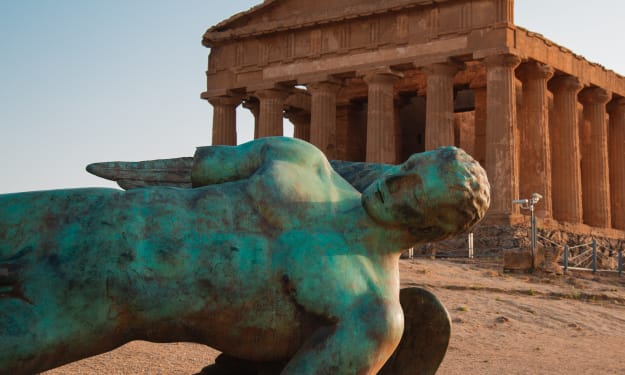The Spread of Islam: A Journey of Unity and Knowledge
The Concept of Tawheed, The Spread of Islam, Impact on Language and Culture

1. Introduction
2. The Concept of Tawheed
3. The Spread of Islam
4. Factors Behind the Rapid Spread
5. Focus Unity: The of Islam
6. Inclusion and the Oneness of Humanity
7. The Unity of Knowledge
8. The Arabic Language
9. The Arabian Horse and Camel
10. Mastery of the Seas
11. Impact on Language and Culture
12. Discoveries and Connections
13. The Influence of Muslims
14. Revisiting History
15. Conclusion
Introduction
The text of the Quran, the sacred book of Muslims, holds deep significance for believers worldwide. In a chapter called Surah An-Nahl, verse 36, Almighty Allah reveals a profound message about the role of messengers sent to every nation. This verse conveys a universal understanding shared by Muslims across the globe. It emphasizes the concept of Tawheed, the belief in the unity and oneness of God, which was prevalent among early civilizations throughout the world. The Prophet Muhammad (peace be upon him) encapsulated this concept, unifying people through the message of Islam.
The Concept of Tawheed
Tawheed, the core principle of Islam, encompasses the belief in the oneness of God. It was a concept ingrained in the hearts of ancient civilizations. People expressed it in different ways, reflecting their cultural and linguistic diversity. In Mandarin Chinese, it was expressed as "Shang T," acknowledging the creator of the heavens and the earth. The ancient Egyptians believed in one God, often associated with the power behind the Sun. Across Africa, the concept of the great cosmic spirit resonated with various nations. In Burundi, people referred to God as "Amana," recognizing His exclusive right to worship. The diversity of expressions continued with the Yoruba in West Africa, who proclaimed that only God is wise, and the Bakongo in Central Africa, who acknowledged that God is unmatched. The Zulu people of Southern Africa referred to the Creator as "One Dolly," signifying God's supremacy. Even in the Americas, the Cherokee Nation held strong beliefs in the Great Spirit.
When Prophet Muhammad (peace be upon him) appeared, he did not introduce a new religion but brought forth what already existed within people—the concept of Tawheed. He sealed the line of prophets and messengers, confirming the belief in one God, the oneness of humanity, and the unity of knowledge. His message resonated with people from all walks of life, transcending boundaries of class, gender, and nationality.
The Spread of Islam
The spread of Islam during the early years of its inception was remarkable. Within a span of 100 years, it reached the Atlantic Ocean in the west and China and the Pacific in the east. This expansion left historians astounded, questioning how a message could traverse diverse climates and nations with such speed. However, understanding the divine purpose and the factors that facilitated this rapid spread reveals a logical explanation.
Factors Behind the Rapid Spread
Unity: The Focus of Islam
Islam's emphasis on unity played a pivotal role in its rapid dissemination. The message of Tawheed encompassed not only the oneness of God but also the oneness of humanity. Muslims embraced this inclusive concept, fostering harmony and brotherhood among diverse communities. The Prophet Muhammad (peace be upon him) emphasized that knowledge is the lost property of the believer, encouraging the acquisition and dissemination of knowledge.
Inclusion and the Oneness of Humanity
Muslims, driven by the belief in the unity of humanity, assimilated knowledge from various civilizations they encountered. They benefited from the wisdom of ancient Egyptians, Assyrians, Indians, Chinese, and Europeans. This accumulation of knowledge empowered Muslims to bridge cultural and linguistic gaps, enabling them to communicate effectively and integrate into different societies.
The Unity of Knowledge
The Arabic language, the medium through which the Quran was revealed, played a significant role in the spread of Islam. Arabic's unique structure and vast vocabulary allowed Muslims to express complex ideas with precision. Additionally, the versatility of the language, utilizing the full range of the mouth's articulatory capabilities, aided Muslims in rapidly acquiring new languages during their travels.
The Arabian Horse and Camel
The Arabian horse, renowned for its speed and spirit, served as a means of swift transportation for Muslims. This breed, unmatched in its capabilities, enabled them to traverse vast distances in a short time. Furthermore, the camel, known as the "ship of the desert," facilitated travel through arid regions, reaching lands previously considered inaccessible.
Mastery of the Seas
Muslims were adept sailors and navigators, enabling them to explore the world's oceans. They employed astrolabes for celestial navigation and developed techniques such as the monsoon system to navigate the Indian Ocean. Their voyages extended to islands such as Madagascar, the Comoros, and Hawaii, leaving traces of their presence and influence.
Impact on Language and Culture
The impact of Islam's spread on language and culture cannot be overstated. Arabic words and names permeated different regions, reflecting the significant influence of Muslim civilization. Even in the United States, names like Mecca and Medina can be found in various contexts. Throughout history, Muslims made contributions to astronomy, geography, and medicine, leaving a lasting legacy on the world.
Discoveries and Connections
Historical accounts, ancient maps, and oral traditions from different cultures provide compelling evidence of Muslim presence in regions such as Central America, Australia, and Brazil. Arab merchants' journeys were recorded by Aboriginal people in Australia, and Arabic names and artifacts were found in various locations. These untold stories reveal the extensive reach of Islam, challenging conventional narratives and expanding our understanding of world history.
The Influence of Muslims
Muslims, driven by their faith and inspired by the teachings of Prophet Muhammad (peace be upon him), brought about significant positive changes wherever they went. They championed economic justice, abolished usury and interest, upheld women's rights, and dismantled racial divisions. The Quran and the Prophet's Sunnah (traditions) became guiding principles for success. As Muslims dispersed in all directions, they carried the message of Islam, establishing vibrant communities and fostering a rich exchange of ideas and knowledge.
Revisiting History
It is essential to view history from a comprehensive perspective, encompassing the experiences and contributions of all peoples. The stories of Muslims and their impact on various regions should be recognized and celebrated. This broader understanding allows us to appreciate the unity, knowledge, and resilience that shaped the spread of Islam.
Conclusion
The spread of Islam stands as a testament to the power of unity, knowledge, and inclusion. The principles of Tawheed, the oneness of God, and the oneness of humanity propelled Muslims to connect with diverse cultures and leave an indelible mark on the world. Islam's rapid dissemination was facilitated by factors such as the unity-focused message, the Arabic language, the Arabian horse and camel, and mastery of the seas. This remarkable journey of the Islamic civilization contributes to a more nuanced understanding of our shared global history.
________________________________________
FAQs
1. Q: Did the spread of Islam occur only through military conquests?
• A: No, while military conquests played a role, the spread of Islam was not solely reliant on them. Trade, cultural exchange, and the appeal of Islamic teachings were instrumental in its dissemination.
2. Q: What were some significant contributions of Muslim civilization?
• A: Muslim scholars made significant contributions to various fields, including mathematics, astronomy, medicine, philosophy, and architecture. Their works laid the foundation for many advancements in later civilizations.
3. Q: How did Islam influence the cultures it encountered?
• A: Islam's influence on local cultures varied depending on the region. While some societies integrated Islamic principles into their existing traditions, others experienced a more significant transformation in language, laws, and social structures.
4. Q: What is the role of Islamic civilization in the history of science?
• A: Islamic civilization made remarkable strides in scientific advancements, preserving and translating ancient Greek and Roman works and contributing to fields such as astronomy, algebra, optics, and medicine.
5. Q: How can we celebrate and acknowledge the contributions of Muslim civilization?
• A: Recognizing the achievements of Muslim civilization involves incorporating their stories and accomplishments into educational curricula, promoting intercultural dialogue, and fostering a greater appreciation for diverse historical narratives.






Comments
There are no comments for this story
Be the first to respond and start the conversation.